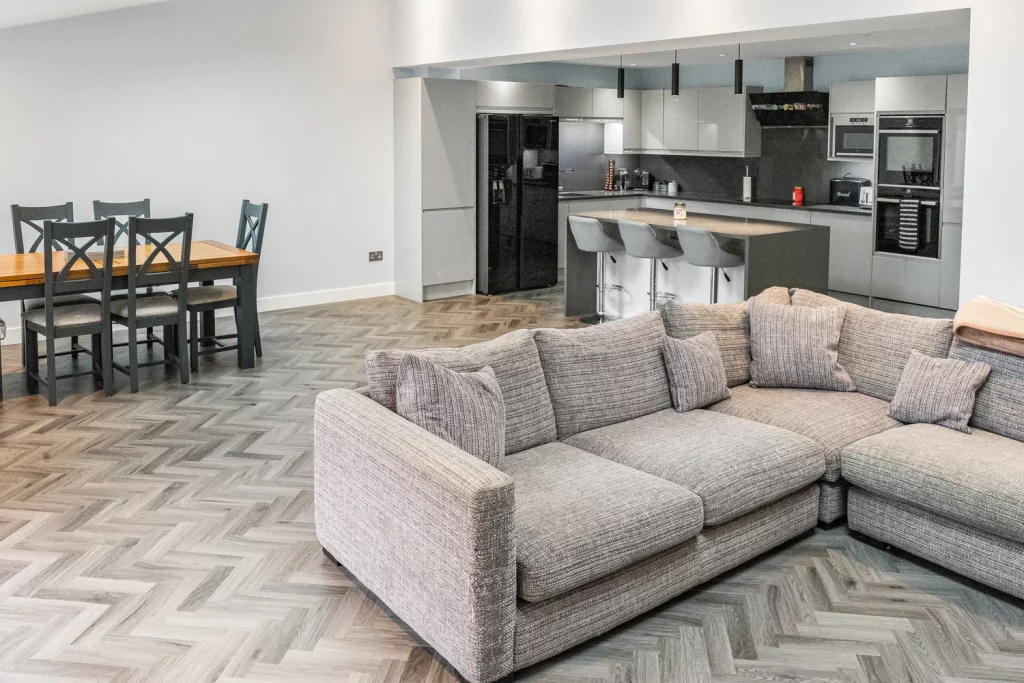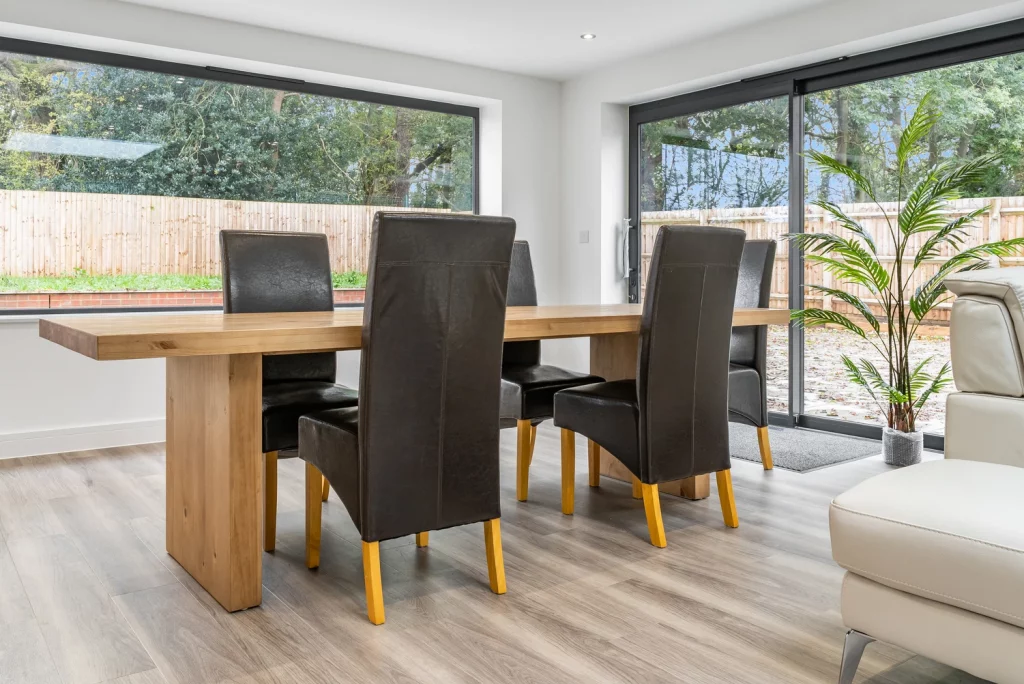Can I Put An Extension On My Council House
Can I Put an Extension on My Council House? Expert Guidance for Successful Planning
Posted by Craig | Updated [current_date format=’F, Y’] | 12 Min Read Time
At a glance
- Putting an extension on your council house is a possibility, provided that you have obtained the necessary permissions from the local council authority.
In this article, you’ll find the following:
- Obtain planning permission and ensure compliance with building regulations for a legal extension project.
- Be aware of potential restrictions in conservation areas when planning your council house extension.
Adding an extension to a council house can be an appealing idea for many homeowners seeking additional living space without relocating. There are a few important factors to take into consideration when planning to extend a council home.
The primary considerations include obtaining planning permission, adhering to building regulations, and being mindful of restrictions in conservation areas.
Planning permission is often required for extensions on any property, including those that belong to the council. It is essential to research the specific regulations and procedures in your local area, as they may vary from one place to another.
Additionally, many other regulations are a set of essential safety guidelines that ensure the structural integrity, energy efficiency, and accessibility of your extension. Your project must comply with these regulations to be considered legal.
In certain cases, there may be additional restrictions on extending properties situated within conservation areas. These locations are protected due to their special architectural or historical significance, and any changes to the buildings within them must be carefully considered.
Failure to adhere to the necessary permissions and regulations could lead to fines, legal issues, and even the removal of the construction work.

Putting An Extension On Your Council House Is A Possibility, Provided That You Have Obtained The Necessary Permissions From The Local Council Authority.
Are you considering adding extra space to your home in St Albans?
Understanding Planning Permission and Building Regulations
Securing Planning Permission To Improve Your Council Home: The Details
Planning permission is a key factor when planning an extension on your council house. For some cases, you may not need to apply for planning permission, as they can fall under “permitted development rights“.
However, certain size limits, placements, and other conditions might bring your project outside of the permitted development category, necessitating a formal planning application to the local planning authority.
If you’re unsure about whether your project requires planning permission or not, it’s crucial to consult your local planning authority. They can provide guidance and advice on the relevant rules and regulations specific to your area.

Complying with Building Regulations
Aside from planning permission, you will also need to ensure that your extension complies with building regulations. These regulations outline the parameters for a safe and energy-efficient design. Factors covered include structural stability, fire safety, ventilation, electrical safety, and energy conservation.
Usually, the building control department of your local authority handles building regulation approval. Alternatively, you can consult an approved inspector. As every project may vary, it’s advised to check with your local authority or a qualified professional to know the specific rules and regulations that apply to your project.
Handling Properties in Conservation Areas
In some cases, council houses might be located in conservation areas. This may affect the planning permission you require, regardless of whether the extension qualifies for permitted development rights or not. Listed properties also fall within this category and may entail additional guidelines and restrictions.
For properties in conservation areas, it is crucial to engage with the local planning authority early on in the planning process or submit a planning application to determine what additional requirements your planned building work may need to adhere to.
In conclusion, when planning to extend your council house, it’s essential to familiarise yourself with planning permission requirements, certain regulations, and any additional rules for properties in conservation areas or listed buildings. By following the proper channels and seeking guidance, you’ll ensure your home improvement project complies with the legal framework in place and serves as a fantastic addition to your home.

Practical Considerations for Extensions
Engaging with Neighbours and Party Wall Agreements
When planning an extension on a council house, it’s essential to consider the impact on your neighbours. Renovation work may require a Party Wall Notice if you share a boundary with your neighbour’s property.
Under the Party Wall Act, you’ll need to notify your neighbours and obtain their consent for any structural changes that might affect the shared boundary or cause damage.
It’s always wise to have open communication with your neighbours, to foster good relations and address any concerns they may have. You may need to negotiate a Party Wall Agreement if maintenance work extends to your neighbour’s wall. Remember to be patient and respectful during the process.
If you are still interested in finding out more about house extensions consider reading our blog on >> Where to start with house extensions
Choosing the Right Professionals for Your Home Improvements
A successful home extension depends on hiring skilled professionals to carry out the work. You’ll need an architect and also a structural engineer to ensure structural integrity and a competent builder to execute the project. It’s crucial to choose experienced professionals with a proven track record to minimise risks and ensure a smooth transition.
Consulting experts like CJ Smith’s can help you decide between a house extension or a conservatory based on your needs and preferences. Do thorough research, get recommendations and review portfolios to make an informed decision about the best professionals to hire.

Impact on Property Value and Council Tax
An extension often increases the value of a property, so it’s essential to evaluate the potential impact on your home. A well-designed and executed project can boost your home’s market value, attracting potential buyers looking for a larger space.
However, keep in mind that a poorly executed building project can have the opposite effect, reducing your home’s desirability and value, so selecting the right building contractors in St Albans is critical.
Additionally, extensions can potentially increase your council tax bill. After your building work is completed, the council tax band may be reassessed based on the changes to your home. Thus, consider potential council tax implications before embarking on a major renovation project.
Carefully weigh the pros and cons of extending your home versus moving to ensure you make the right decision for your lifestyle and needs.
Conclusion
In summary, putting an extension on your council house is a possibility, provided that you have obtained the necessary permissions from the council authority. As highlighted above the permission is mainly dependent on the type of tenancy an applicant is under.
When considering such an important decision it is crucial to engage an experienced architect who can guide you through the process and ensure your project complies with the house extension rules. An architect can help you with an optimised layout and innovative designs to improve your living space.
Extending a council house may require planning permission, but certain projects can be carried out without it, under permitted development rights. Familiarising yourself with these rules and regulations is essential before proceeding with any home improvement project.
By following the correct steps, council tenants can enhance the functionality and value of their property while enjoying a more comfortable and spacious living environment.

Craig Smith
The founder of CJ Smiths Construction Company for over 14+ years and a proud citizen of St Albans City.
